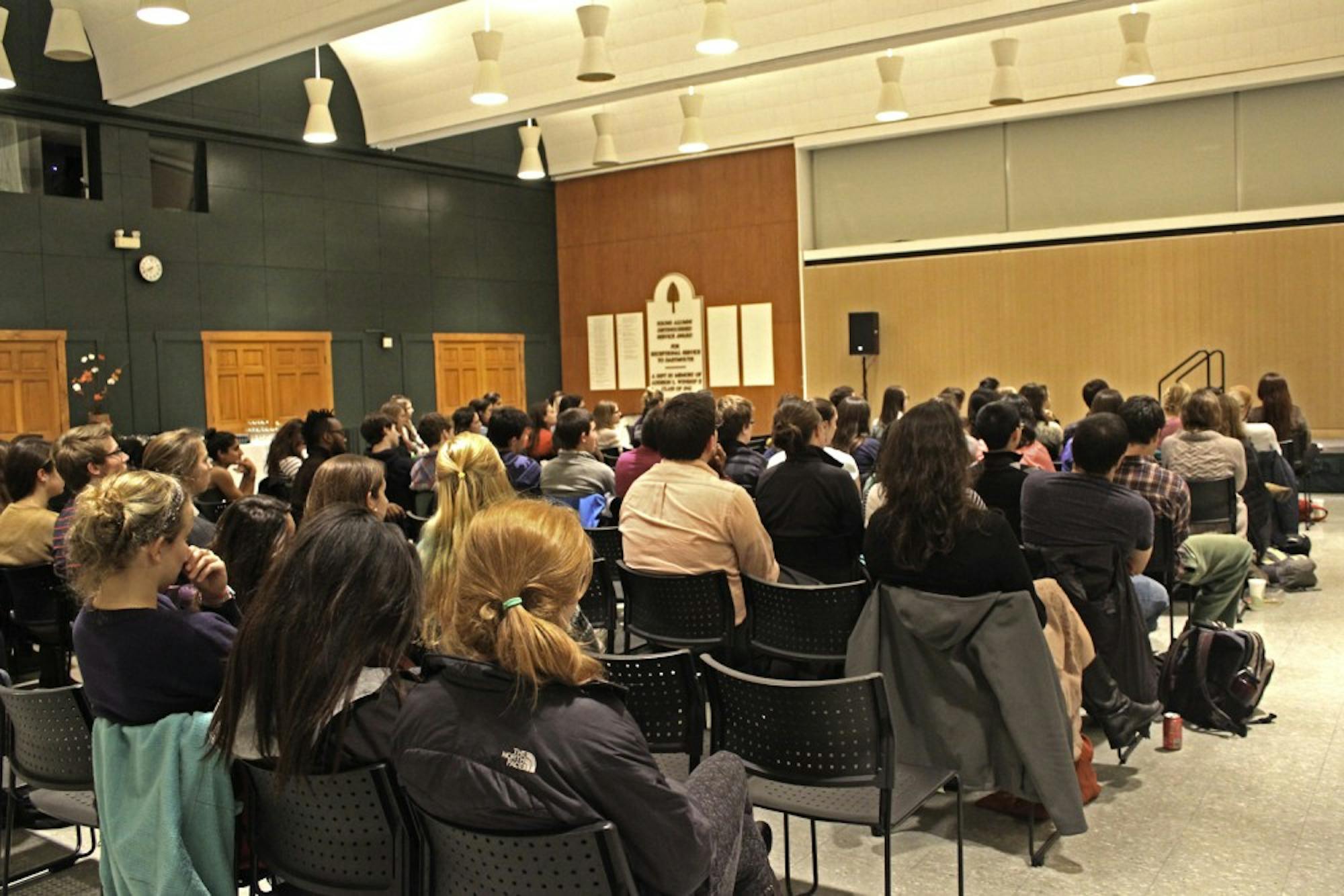Queer and Catholic, a male student spoke of pressure to conform to one aspect of his identity at a panel Tuesday night.
“First I was so worried about being a proper Dartmouth man and then a proper gay man, until I thought to myself ‘I don’t know what I’m trying to do anymore,’” he said.
When he allowed himself to accept all aspects of his identity, he said, worries about “being fratty enough, facetimey enough” went away.
“There’s this perception that when you come to Dartmouth you have to find your niche or that you will have a niche right away,” he said. “Events like this are important because it reminds us that it’s not necessarily about how my story stands out in Dartmouth or how Dartmouth is a good fit for me or for anyone, but just that this is my story, just one of many that is part of Dartmouth now.”
His story was one of five shared Tuesday night by male members of the Class of 2015 to an audience of nearly 70 people in an annual Men of Dartmouth event. The five speakers, who requested anonymity due to the personal nature of their stories, spoke about how Dartmouth helped shape their identities.
“Your story is the most important thing you own,” the final speaker said.
Inter-Community Council co-director Carla Yoon ’15, who helped organize the panel, said they chose speakers whose stories challenged widely accepted ideas of masculinity.
The first speaker shared his story of battling clinical depression and coping with conflicting identifiers as an urban man and a Dartmouth man, which he called his masks. He said he is “constantly mishandling masks” as he is never sure which identity to present.
He began his story with a poem that explored how his father’s death influenced his identity as a man.
“I don’t know how to explain death to children,” he said. “I just want to give you my thoughts, thoughts without cohesion.”
He said financial burdens, too, contributed to his character as they enforced one difference between him and many other students at the College. An experience with a financial aid advisor who asked him for $200 to check in for the term stood out to him.
”I began to wonder why $200 is just $200,” he said. “I don’t have family members that can give me money without a worry.”
He said Dartmouth provided him with resources, such as friendships and inspirational professors, that helped create a sense of belonging.
“I still don’t know what is underneath these masks, but whatever is beneath those masks is still in progress,” he said.
Another speaker said his experience of masculinity centered around a journey to self-compassion. He said that he developed new ways of coping with feelings of worthlessness.
“I told myself as long as I put 100 percent in everything I did I would be content,” he said. “While my self-compassion is not stable yet, I think I’m reaching a rhythm.”
Another, who was undocumented when accepted to Dartmouth, expressed gratitude for the opportunities the College provided him.
“Dartmouth validated my worth as a citizen before the government did,” he said.
The night concluded with a student who said he learned to accept both his Native American and Caucasian roots while at Dartmouth.
“I could tell you my name, but when you ask me about my roots, my roots beg me to tell a story,” he said.
He said he learned to not “be afraid of who you are.”
The night of testimonials concluded just as it begun, with a poem.
“Stories are the sun,” said the final speaker. “Have you ever wondered why we have a voice?”




